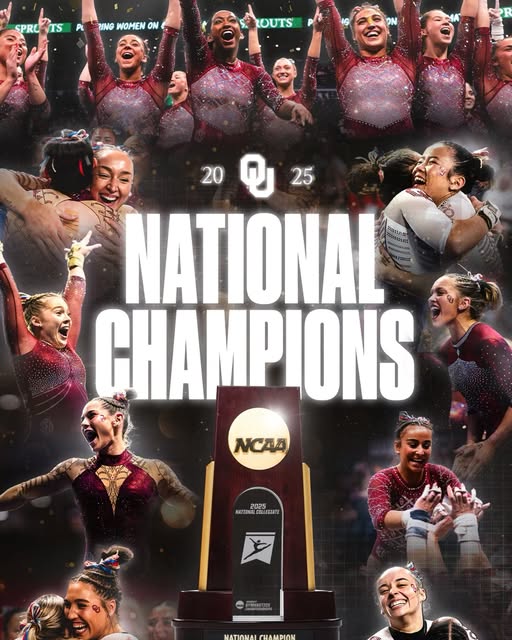
LUCKY NUMBER SEVEN among the women Champions
Below is an in-depth exploration of the symbolic resonance and cultural significance of “Lucky Number Seven” as it intersects with the narrative of women champions. This article examines historical beliefs, personal superstitions, and the embodiment of resilience and triumph in women’s lives and sports. While the phrase “Lucky Number Seven” may evoke images of superstition and numerology, it also serves as a metaphor for excellence, consistency, and the power of belief—a phenomenon often seen in the stories of women who have overcome challenges in sports, leadership, and other competitive fields.
Numbers have long played an essential role in human culture. In many traditions, the number seven carries connotations of luck, completeness, and even spiritual perfection. From biblical references to ancient mythologies, seven has been seen as a number that resonates with mystery and fortune. This perception has seeped into modern culture and sports, where numbers on jerseys, in record-keeping, or even symbolic gestures can carry personal and collective significance.
For many women champions—be they athletes, activists, or leaders—the concept of “luck” is more than a superstition. It is a symbol of the fortitude required to defy adversity. When we think of “Lucky Number Seven,” we’re reminded of those rare, defining moments when the impossible becomes possible through dedication, perseverance, and often, the sheer will to succeed.
Numerology and Belief: The Historical Context
Historically, many cultures have endowed the number seven with sacred properties. In Judaism and Christianity, for example, the creation story in Genesis notes that God created the world in six days and rested on the seventh, making it a symbol of completion. In ancient Greece and Rome, seven was frequently invoked in philosophical and religious texts, connecting the material with the divine. The number also appears in folklore and fairy tales—a reminder that even myth has a basis in the human desire to see order and meaning in the chaos of life.
For women champions, particularly those entering fields historically dominated by men or facing societal adversity, the symbolism of a “lucky” number may reflect an inner belief that fortune can be swayed by courage and unwavering determination. It becomes an emblem of the transition from being underestimated to being celebrated for one’s strength and prowess.
The Intersection of Superstition and Athletic Excellence
In the world of sports, numbers are far from arbitrary. They represent legacies, record-setting moments, and personal talismans. For many athletes, including women champions, a particular number can become a beacon of identity. Whether it’s the jersey number worn during a career-defining season or a number that marks a series of accomplishments, athletes often attach layers of meaning to these digits. The number seven, imbued with the aura of luck and magic, occasionally stands out as a marker of excellence.
Women in sports have had to navigate not only the physical and mental rigors of competition but also the cultural expectations that come with their gender. In many cases, the belief in luck and destiny becomes intertwined with rigorous training regimes and calculated strategies. For instance, a female tennis star or track athlete who consistently performs above expectations might be seen as “lucky” or “special,” in part because she defies the odds repeatedly. Such narratives both inspire and underscore that while hard work is essential, the intangible elements of self-belief and positive energy are equally important.
Stories of Resilience and Triumph
A number of celebrated women champions have made the number seven a part of their legacy—sometimes by mere association rather than by design. Their stories serve as case studies on how personal symbols, like a number, can become a rallying cry for overcoming obstacles.
-
The Unyielding Spirit of Seven-Round Combatants:
In boxing and martial arts, the number of rounds and the timing of a champion’s career milestones can take on symbolic meaning. When a fighter enters the ring with a storied number like seven, it might represent a metaphorical battleground where every round counts—each passing round symbolizing a step towards eventual glory. Female fighters, who once struggled against stereotypes and limited opportunities, have often relied on these symbolic numbers to remind themselves and their fans that every round fought is part of a larger narrative of empowerment. -
Track and Field – The Seven-Lap Revolution:
In endurance sports, particularly track and field events, overcoming a particular number of laps can be more than a physical challenge; it represents breaking free of self-imposed limitations. Consider a marathon or an intermediate relay race where the number seven is achieved after countless laps, each filled with both struggle and the spark of victory. Athletes have recounted how the sight of the number seven on scoreboards or as part of their training regimen provided that extra burst of motivation during grueling competitions. -
Leadership Beyond the Field:
The metaphor of “Lucky Number Seven” goes beyond sports. Many women leaders in politics, education, and business have recounted moments where the number seven appeared as a sign of success and guidance. These leaders often face unique challenges in fields where they must persist despite historical imbalances. Their achievements are not solely the result of meticulous strategy and hard work; they are also powered by moments of serendipity, fortuitous timing, and an unwavering belief in destiny. Such stories contribute to a broader cultural narrative where luck and merit coexist.
The Psychological Impact of Belief in “Lucky” Numbers
A fascinating aspect of human psychology is the extent to which symbolic objects—or in this case, numbers—can influence performance and confidence. Studies in sports psychology suggest that superstition, when harmless, can have a placebo effect. Women champions often harness this phenomenon by incorporating rituals or lucky numbers into their routines. When an athlete steps onto the field or into the arena with a number that carries personal or cultural significance, it transforms into a mental talisman that helps channel focus, energy, and confidence.
For example, an athlete who wears a jersey emblazoned with the number seven may feel an enhanced connection to past legends or a sense of continuity with the history of her sport. This symbolic connection can produce measurable improvements in mental resilience, allowing the athlete to overcome moments of doubt or intense pressure during competitions. The allure of lucky numbers, therefore, is not merely an archaic superstition, but a modern acknowledgment of how psychology can tangibly affect performance.
Cultural Shifts and Modern Narratives
In today’s rapidly evolving social and cultural landscape, the narrative around numbers and luck has shifted significantly. Modern women champions are increasingly celebrated not only for their athletic achievements but also for their advocacy, leadership, and embodiment of progressive values. In many instances, these champions consciously reject the limitations imposed by outdated stereotypes, using symbolism—like that of the number seven—to redefine what it means to be “lucky.”
In various media portrayals and biographies, the number seven is often highlighted as an emblem of an unyielding spirit. Documentaries, interviews, and social media narratives draw connections between the serendipity of luck and the preparation, persistence, and passion required to excel. These stories resonate with a new generation of young women who are looking for role models to emulate, ones who blend hard work with the recognition of intangible elements like destiny and fortune.
The Dual Nature of Luck: Chance and Choice
One of the most compelling lessons to emerge from the exploration of “Lucky Number Seven” is the recognition that luck is a dual-edged concept. On one hand, there is an undeniable element of chance—events that occur without human control—but on the other hand, there exists the power of personal choice and perseverance. Women champions, like many great leaders, have demonstrated that while fate might provide opportunities, it is their choices, their grit, and their relentless pursuit of excellence that truly define their success.
By embracing the symbolic meaning behind the number seven, these champions illustrate a powerful truth: luck favors the bold. This phrase encapsulates the notion that although the universe might conspire in mysterious ways, it is ultimately the individual who must seize the moment, harness the available energy, and strive for greatness. In this light, “Lucky Number Seven” becomes not a passive state of being but an active state of mind—a call to action for those who dare to dream big.
Broadening the Scope: Beyond Sports
While the connection between “Lucky Number Seven” and sports is perhaps the most visible, the metaphor extends to many arenas in which women have excelled. In literature, the arts, academia, and social activism, the idea of a lucky number can serve as a symbolic reminder that success is a tapestry woven from countless moments of inspiration, struggle, and triumph.
-
In Literature and the Arts:
Authors and artists often revisit the themes of destiny and luck in their work. The recurrence of symbolic numbers in narratives and visual art underscores the ways in which human beings create meaning from coincidence. Women in the creative fields sometimes choose the number seven as a signature element in their work, perhaps as a reminder of the cyclic nature of creativity and the importance of embracing both the light and dark aspects of the creative process. -
In Business and Innovation:
The corporate world is not exempt from the charm of numbers. Successful businesswomen sometimes attribute pivotal decisions or breakthroughs to small, seemingly random factors that add up to create a perfect storm of success. Whether it’s seven key meetings, seven major contracts, or simply the belief that luck played a part, this narrative serves as a testament to the blend of strategy and serendipity in achieving extraordinary outcomes.
Embracing a Legacy of Strength
The legacy of women champions who have embraced “Lucky Number Seven” is multifaceted. For some, the number is a personal amulet that helped them stand tall in the face of formidable odds. For others, it is a public symbol—a rallying cry for women everywhere to believe in themselves and to view every challenge as a stepping stone to greater victories. It is a reminder that success is rarely the product of chance alone, but rather the cumulative result of talent, perseverance, and that inexplicable quality we often call “luck.”
In recounting these stories, we recognize that the journey toward excellence is rarely straightforward. It is a winding path with setbacks, detours, and unexpected triumphs. Women champions who have adopted the symbolism of the lucky number have often spoken about moments when a seemingly minor detail—a number on a locker, a jersey, or even a crucial moment arriving on the seventh try—became emblematic of their journey to success. These micro-narratives enrich our understanding of what it means to compete, overcome, and ultimately celebrate the human spirit.
The Psychological and Emotional Resonance
At its heart, the concept of “Lucky Number Seven” is deeply psychological. It taps into the human need for narratives that validate our efforts and our experiences. In high-pressure environments, where every decision is magnified, the incorporation of symbolic numbers can ground an individual in a sense of continuity and purpose. For women champions, who often have to counteract stereotypes and external pressures, this psychological tool becomes indispensable.
The emotional resonance of the number seven lies in its promise: that amid uncertainty, there is a pattern—a hidden order that rewards hard work, resilience, and perseverance. Every time a champion triumphs against the odds, the number becomes a part of her personal mythology. It connects her journey to a broader narrative of historical and cultural significance, affirming that luck and fate are often the byproducts of relentless striving.
Lessons for Future Generations
For young women embarking on their own journeys in competitive fields, the narrative of “Lucky Number Seven” offers several timeless lessons:
-
Embrace Your Symbolism: Find personal talismans—be they numbers, rituals, or beliefs—that inspire confidence and fortify your resolve during tough times.
-
Balance Preparation with Serendipity: Recognize that while hard work is indispensable, remaining open to the unexpected twists of fate can also lead to breakthroughs.
-
Celebrate Every Milestone: Understand that every small success—each “round” won, every “lap” completed—is a building block of your larger legacy.
-
Redefine Luck: View luck not as an external force that arbitrarily gifts success, but as a reflection of your readiness to seize opportunity when it arises.
The tales of women champions who have found meaning in the number seven remind us that success is a mosaic of efforts, challenges, and moments that defy easy explanation. Their stories encourage future generations to harness the power of belief and to understand that every setback is just a prelude to a greater victory—a victory often marked by the serendipitous alignment of passion, perseverance, and yes, a little bit of luck.
In dissecting the concept of “Lucky Number Seven” among women champions, we uncover a rich tapestry woven with historical superstition, psychological resilience, and cultural symbolism. The number is more than just a digit—it symbolizes a legacy of hard-fought battles, unexpected turns of fortune, and the unwavering determination to triumph against all odds. From the arenas of sports to the boardrooms and stages of creative expression, women have adopted and redefined this symbol to mirror their own experiences of struggle and success.
Ultimately, the narrative of Lucky Number Seven invites all who hear it to look beyond the superficial notion of chance. It challenges us to see that every moment of victory, every breakthrough against the odds, is not merely a stroke of luck but a testament to the indomitable spirit of those who dare to dream. Whether on the field, in the arena of public service, or in the quiet battles of everyday life, women champions continue to inspire by showing that the true essence of success lies in the convergence of talent, tenacity, and the empowering belief that fortune indeed smiles on the brave.
This exploration serves as a reminder that while numbers may be steeped in symbolic meaning, the true measure of greatness is reflected in the strength, perseverance, and courage of those who dare to challenge the status quo. As we look to the future, the legacy of “Lucky Number Seven” among women champions remains a beacon—an inspiring narrative that celebrates not just the randomness of fate, but the deliberate actions that shape history.
In a world where chance and choice are intertwined, the story of Lucky Number Seven continues to evolve—a living metaphor for resilience, hope, and the relentless pursuit of excellence. It offers a lasting lesson: that every step taken with passion, every risk embraced with determination, is a step closer to forging a legacy that transcends numbers—a legacy that is, at its core, remarkably human.
This exploration, spanning historical perspectives, psychological insights, and personal testimonies, underscores that the power of “Lucky Number Seven” is not confined to superstition alone. It is, rather, an emblem of the transformative journey many women champions have undergone—a journey characterized by an unyielding belief in themselves, a deep respect for tradition, and an inspiring vision for a future where every setback is merely a precursor to extraordinary success.





